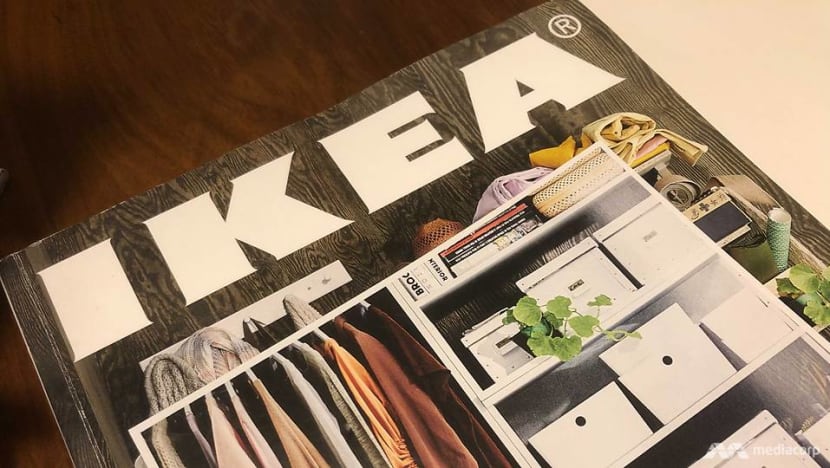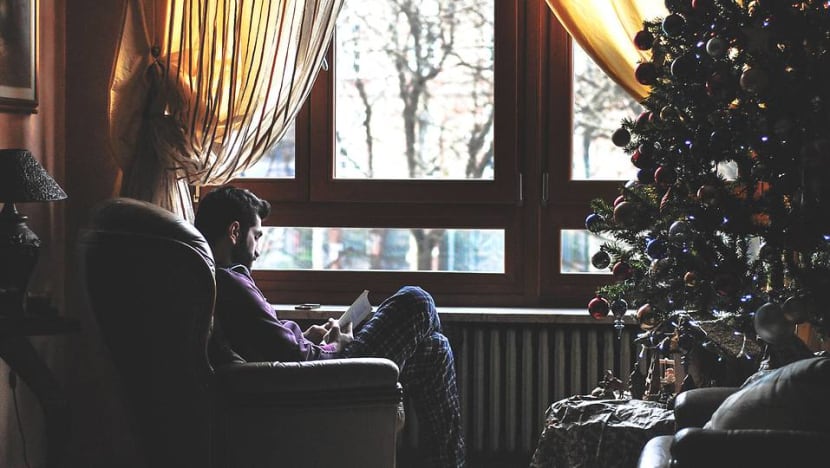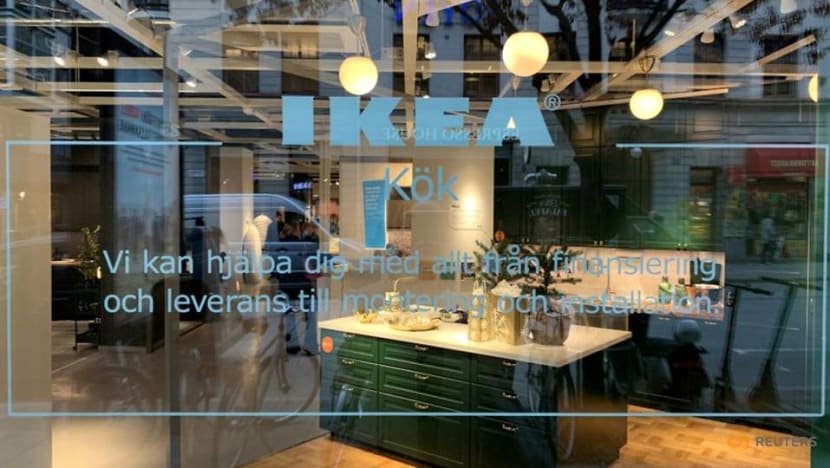commentary Commentary
Commentary: We know the IKEA catalogue was much more to us than pages of furniture
The discontinuation of the catalogue reflects a common progressive move to digital platforms and a more environmentally friendly means of content consumption. So why do some of us feel a strong sense of loss?

File photo of an IKEA catalogue.
SINGAPORE: As if 2020 hadn’t dealt us enough misery, IKEA decided to discontinue their annual print catalogue.
The free catalogue is sent to homes, both big and small, every year without fail.
But after a seven-decade tradition, the Swedish furniture giant pulled the plug on one of their most well-loved products.
Reaction to the news was split into two main camps. One praised IKEA for going green, while the other lamented the loss of the annual experience of receiving their catalogue in the mail then spending time flipping through its pages.
One CNA Facebook follower from the latter camp said:
I still love flipping books. Sometimes I just don’t want to hold any gadget or use my phone for everything. Books are still one guilty pleasure.
Another mentioned: “Browsing through the catalogue allows for time to think, and at one’s own sweet time and location, regardless of internet availability, without tiring one’s eyes.”
Unlike some people who long to keep everything old school, inconvenience be darned, I love companies that embrace digital transformation, whether to save the earth, increase productivity, or enable more creative content.
But as someone who still keeps a handful of 8 Days, Seventeen and Lime magazines from two decades ago, despite each issue falling apart, I wish I wasn’t forced to bid goodbye to my annual therapeutic tradition of thumbing through the catalogue, inhaling the woody scent of its fresh pages and peering at a beautifully arranged bedroom or study.
At least, certainly not in a year when we need known sources of comfort more than ever.
READ: Commentary: I used to think a staycation was a poor alternative for being overseas. Then I took one
MORE THAN NOSTALGIA
I didn’t expect to feel unusually sad about the discontinuation of the IKEA catalogue. Then again, the news broke during the holiday season - a period when most of us look forward to renewed joy and hope, especially after an emotionally and mentally taxing year.

To many people like myself, the catalogue wasn’t just a booklet with pretty pictures of furniture and suggestions for interior decoration.
It was an entire way of life to receive the catalogue in the mail, then carve out time to sit quietly and flip through the booklet, even if you didn’t buy anything in the end.
But my sense of loss is not unique. The reactions from those who miss the good old days can feel like deja vu.
READ: Commentary: We cannot allow COVID-19 to disrupt our relationships too
READ: Commentary: We will miss Singapore's nightlife scene sorely if it dies
We see similar reactions whenever elderly hawkers decide to retire since their family do not want to take over their business, or when heritage buildings are torn down or when old neighbourhoods undergo gentrification.
There were even comparable emotional responses when Robinsons closed its doors. Many felt strongly about its closure because the department store represented a part of our childhoods.
READ: 91-year-old hawker behind historic wonton noodle stall calls it quits
READ: Commentary: We mourn the loss of Robinsons because it was a key piece of our childhood
Nostalgia appears to largely drive these sentiments - even if the object facing obsolescence wasn’t a significant part of one’s daily life that losing it would cause great inconvenience or emotional devastation.
But underlying this nostalgia is a longing for familiarity. As a result, any sort of change, especially if it involves the upheaval of something that’s been part of our national landscape or emotional memory, often elicits irrational yearning for its return or stay.
The IKEA catalogue, however, is more than a nostalgic icon. We don’t just mourn its discontinuation because we love the physical touch of a book or want to experience familiarity in a year where change seems to be the only constant.

If I can pinpoint a singular reason the move to discontinue the catalogue has evoked a stronger emotional response than expected, it would be that the catalogue doesn't really sell products.
It sells, perhaps most crucially, aspiration.
A BETTER SELF, A BETTER LIFE
As another Facebook fan aptly put it: “I always pretend I’m buying those stuff that I’ve chosen from the magazine to decorate my imaginary house that I have.”
But our collective love for the IKEA catalogue wasn’t just about the home you could own. It was also about the person you could be.
I might be looking at the modular JONAXEL storage system, which can be “built to suit any style and any small space”, according to the 2020 catalogue. But what I’m really seeing is a version of myself who has her life together, beginning with an organised cupboard.
READ: Commentary: In defence of baking bread, watching reality TV and other frivolous fads in the time of COVID-19
I might be looking at a mahogany bedroom spread “that makes you feel relaxed”, complete with dark grey quilts, sheets and throw cushions, and a single potted plant in the corner of the room. But what I’m really seeing is a version of myself self-sufficient enough to finally embrace minimalism and slow living.
Even browsing through the children’s section of the catalogue makes me believe I can be the sort of person with an Instagram-worthy family and prepare Instagram-worthy meals every night, regardless of whether I want children or know how to cook.
Most importantly, these aspirations felt accessible and achievable.
For example, S$59 for a RASKOG kitchen trolley could transform you into a person who winds down with a glass of wine every night, making the aspirations sold to us even more alluring.
READ: Commentary: Why do we love judging other people’s home renovations?
WHAT DO WE LOSE
When news first broke, my sense of loss felt melodramatic, but it was also valid. After all, it felt like another parallel experience I’d been through this year when I started a new job, only to have my entire team already working from home.

The move to discontinue the catalogue might just be the perfect embodiment of 2020.
Replacing the IKEA catalogue with an Instagram feed or an online PDF catalogue can feel like using Zoom meetings as a replacement for human interaction during the circuit breaker period.
Just like I could still interact with my colleagues and friends over video call, I can still browse IKEA’s social media feeds and imagine myself as better versions of myself with each Instagram post.
READ: Commentary: The weird and disorienting uncertainty of starting a new job under COVID-19
But without the physical catalogue designed to immerse me in my aspirations, even these better versions of myself ironically feel two-dimensional.
No matter how efficient going digital may be, it strips away a fundamental human element, flattening the experience of emotional connection.
In this case, the connection was simply with a better version of ourselves.
Grace Yeoh is a senior journalist at CNA Insider.














